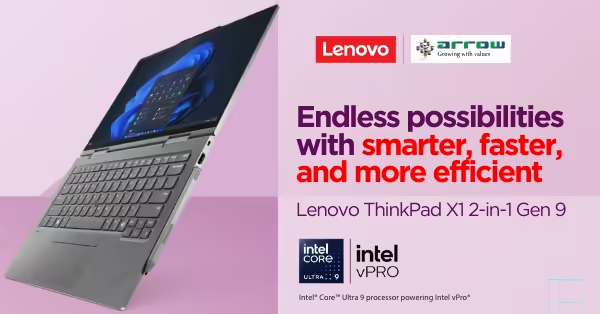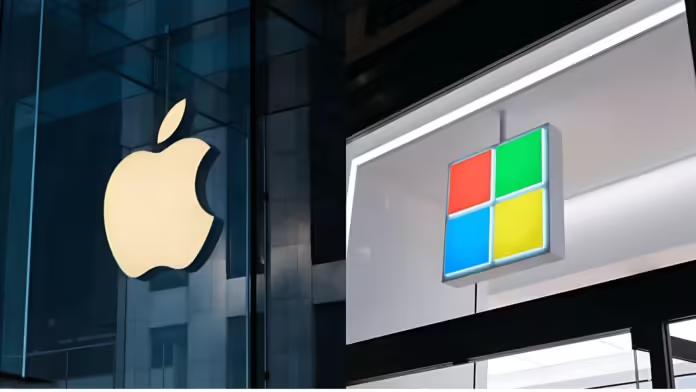Alright, let’s dive into why Microsoft’s new security playbook and Apple’s fresh cloud privacy push matter right now for enterprises—and why both are not your typical corporate “we care about security” PR fluff. With cyber threats becoming sneakier and more malicious by the minute, both giants are showing up in different, but equally critical ways.
Microsoft vs Apple: The Showdown You Didn’t Know You Needed
So, Microsoft and Apple have decided to level up—like really level up—when it comes to keeping enterprise data locked down. The main players? Microsoft’s Secure Future Initiative (SFI) and Apple’s Private Cloud Compute (PCC). Both have their own vibes, but at the core, they’re here to close those annoying security loopholes that hackers love exploiting and to keep your data your data. If you’re thinking “Wait, how are these two tech titans doing this?” you’re in for a ride.
Let’s start with Microsoft’s Secure Future Initiative (SFI). This initiative is essentially Microsoft giving the finger to cyber threats across its ecosystem by integrating security into every nook and cranny of their services—Azure, Microsoft 365, you name it. In short: it’s security on steroids.
Then there’s Apple. Yeah, the same Apple that’s been flexing its privacy muscles for years with its devices. Now they’ve rolled out Private Cloud Compute (PCC), a platform for secure, private AI processing. Think of it as Apple taking their obsession with privacy from your iPhone straight into the cloud. Their aim? Make sure nobody—not even their own engineers—can access your data. Oh, and they’ve built this from the ground up with custom silicon and a hardcore OS.
Microsoft’s Secure Future Initiative: It’s Like Your Favorite Game’s DLC, But for Security
Let’s be honest, Microsoft’s cloud game is already pretty tight, but SFI takes things to a whole new level. They launched it in November 2023 and immediately went into overdrive. Why? Because they know enterprise security needs are everywhere, and one simple patch won’t cut it. This is about system-wide fortification.
At its core, SFI is based on three mantras: secure by design, secure by default, and secure operations. Basically, it means Microsoft is building security right into their code from day one, not as an afterthought. They’re also getting serious about AI. Takeshi Numoto, Microsoft’s EVP (you know, one of the big bosses), said, “At Microsoft, security is our top priority,” and yeah, we hear that all the time, but with SFI, it feels like they mean it. They’re embedding AI safety into the DNA of their products, ensuring they’re not only secure but also play by the rules of Trustworthy AI.
So, what are these six fancy engineering pillars of SFI?
- Protecting identities: Phishing? Not today. Microsoft’s going after identity-based breaches like a boss, slashing attack surfaces with phishing-resistant credentials.
- Tenant protection: Keeping production systems isolated, because if one thing goes down, you don’t want everything to follow.
- Network protection: Micro-segmentation all the way! This means even if hackers slip into your network, they’re not going anywhere fast.
- Engineering system defense: They’ve adopted a Zero Trust approach for dev environments. No one gets free rein here—not even the devs.
- Real-time threat detection: Centralized logs? Yes, please. If something’s going wrong, they’ll know.
- Swift action: Vulnerabilities get addressed in record time, and Microsoft doesn’t wait for the bad guys to start exploiting flaws before taking action.
Apple’s Private Cloud Compute: The Privacy Flex You Didn’t See Coming
Now, flip to Apple’s Private Cloud Compute (PCC), and it’s clear they’re leaning into their signature privacy-first attitude. Launched in June 2024, PCC isn’t just another cloud platform—it’s privacy on lockdown, designed to keep your AI data so secure even Apple’s own engineers can’t peek.
Let’s talk tech for a second. Apple’s gone all out with stateless computation. In simple terms, that means your data is processed for what it needs to be processed for—and then poof, it’s gone. No snooping allowed. They use their Secure Enclave, a.k.a. custom silicon, to make sure nothing sticks around.
PCC also goes full Zero Trust—no one gets privileged access. Not your IT guy, not your devs, not even Apple itself. And then there’s Oblivious HTTP routing. Think of it like your data going undercover in a cloak of invisibility—no one can track its origin.
Oh, and transparency? Apple’s like, “Let’s open the books.” They cryptographically sign logs of all the software running on their PCC nodes, so researchers and auditors can ensure everything’s legit. If you’re a bug hunter, Apple’s practically inviting you over for tea, offering bounties for any vulnerabilities you find.
Microsoft SFI vs. Apple PCC: Who Wins?
Both are big players, and both are making moves. But which one’s right for your enterprise?
- Cloud Security and Threat Models: Microsoft is all about reducing the attack surface with their Zero Trust framework (if you’re curious, check out the NIST standard 800-207—it’s like the Bible of Zero Trust). Apple? They’re leaning into AI privacy like a pro, keeping your data locked down in cloud environments.
- Cultural Integration: Microsoft’s built SFI into every aspect of its operations, from governance to product development. They’ve created a whole Cybersecurity Governance Council to manage risk across the company. Apple’s approach is more tech-driven, embedding privacy directly into their hardware and software. No need for a big cultural shift here—Apple’s been privacy-focused from the get-go.
- Scope and Focus: Microsoft wants to protect everything—your identities, your data, your networks. Apple’s laser-focused on AI privacy, ensuring your cloud-processed data stays under wraps. They’re not trying to cover everything; they just want to make sure AI runs securely and privately.
- Technical Implementation: Microsoft’s weaving security into every step of development, from the first line of code to product deployment. Apple’s doubling down on privacy, with custom silicon and stateless computation leading the way.
The Shift in Enterprise Security
In a world where IT teams already have way too much to juggle, Microsoft and Apple are handing them tools to make security easier, not harder. Microsoft’s SFI is rewriting the rulebook on security by design—making sure security isn’t something tacked on but integrated from day one. Apple, on the other hand, is continuing its privacy crusade by expanding device-level security into the cloud.
For enterprises trying to stay ahead of cyber threats, these aren’t just incremental changes—they’re massive shifts. Microsoft’s tackling the full spectrum of security challenges head-on, while Apple’s creating a fortress for AI in the cloud.
In the end, it’s all about choosing the right platform for your needs. Whether it’s privacy-first AI processing or full-spectrum cloud security, the choice is clear: Microsoft and Apple are raising the stakes, and the winners are the enterprises smart enough to keep up.
Contact Arrow PC Network to secure your enterprise’s future in the cloud!
For enterprises seeking top-notch cloud security and privacy, Microsoft and Apple’s cutting-edge initiatives are game-changers. But choosing the right solution can be tricky. That’s where Arrow PC Network comes in. Connect with us today to get the best cloud solution tailored for your business needs, ensuring top-level security, privacy, and performance.


